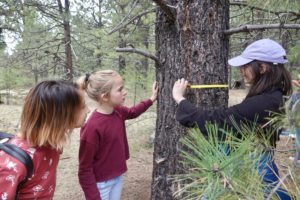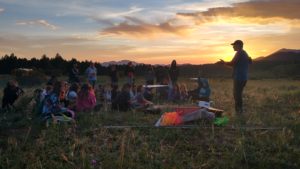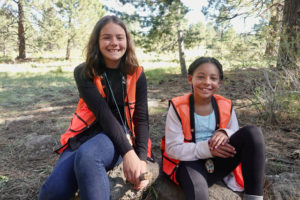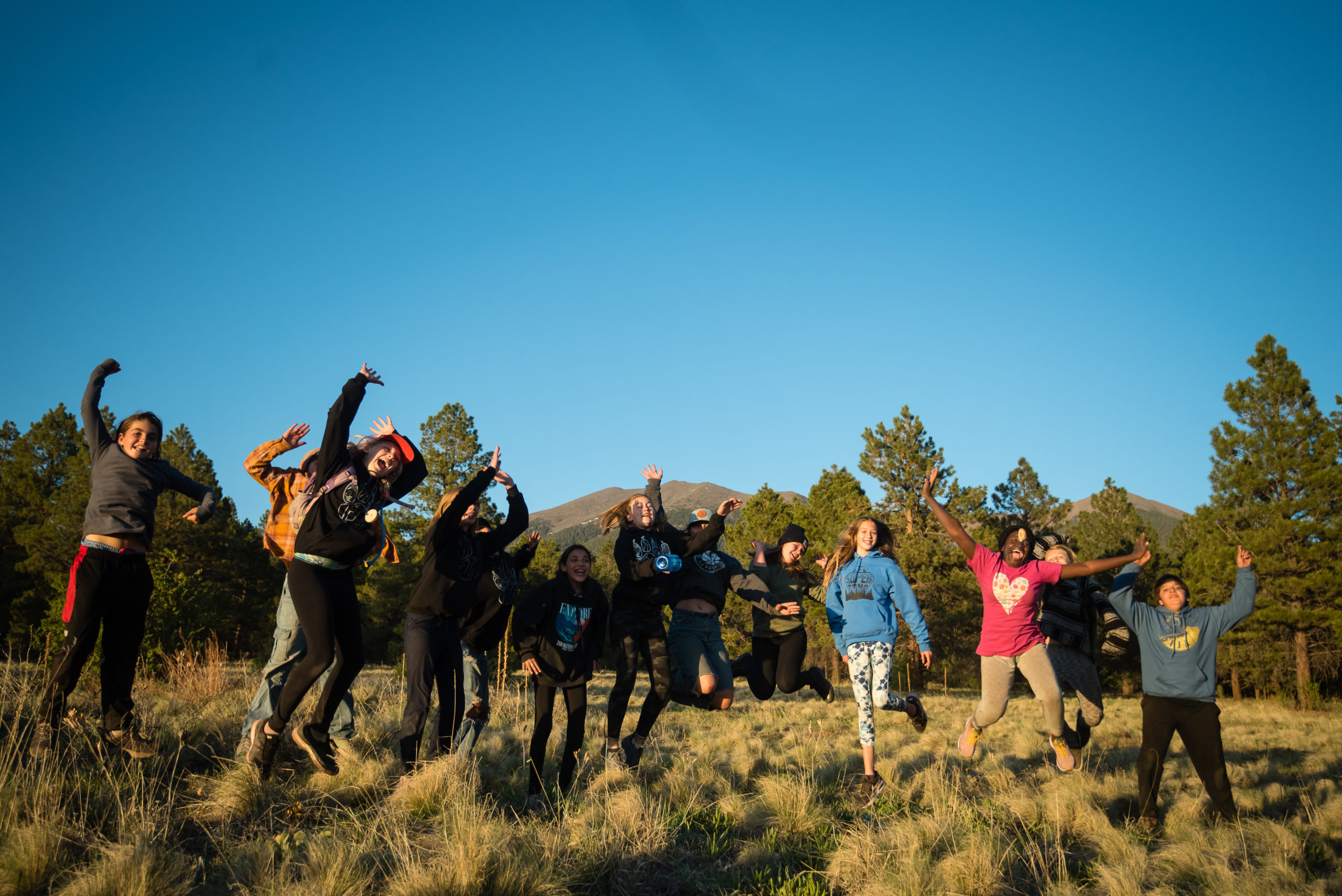5 Key Benefits of Outdoor Environmental Education
Experiences like Camp Colton provide myriad benefits for kids.
![]()
![]()
![]()
![]()
 What is environmental education?
What is environmental education?
Environmental education enables students to learn about environmental issues, develop problem solving skills, and take action. This process teaches students to think critically about complex issues and prepares them to be engaged citizens. Environmental education is often delivered through experiences in nature that encourage students to make a personal connection to their environment.
Why is environmental education important?
To prepare our kids to be future stewards, they must have opportunities to connect with nature, learn about their environment, and understand how to care for our world. Outdoor experiences build community, connecting us to each other and our natural world. As kids spend more time using technology and staying indoors, these meaningful connections are more important than ever.
Why is environmental education important for local kids?
At Camp Colton, we know that the kids of today will be actively solving the environmental and social challenges of tomorrow. It is essential that our community members have the skills to make decisions about water use, forest management, climate change, and preservation of natural places. As our community grapples with catastrophic wildfire and drought, kids are at Camp learning about healthy forests, including healthy fire, hydrology, and water conservation. Camp Colton is committed to educating the next generation of environmental stewards.
“Camp Colton changes the way people think about their environment and helps them understand what is going on with climate change. It also helps people open up to each other and see the beauty of nature. Camp Colton is quite amazing.”
– Sophia, 6th Grade Camper
What do kids, teachers, and alumni say about Camp?
Key benefits of outdoor environmental education
- Inspires curiosity and exploration
Explorations outside are naturally open-ended, prompting questions and problem-solving. This freedom increases students’ interest and motivation to explore relevant local environmental issues, setting the stage for future learning and even career choices.
- Nurtures positive relationships
Outdoor learning, often a special experience for students, builds community. Students interact with their peers and caring adults in new ways and learn how to be part of a team. Through residential programs like Camp Colton’s, kids learn, play, and live together all week long, amplifying opportunities for bonding and connection.
- Fosters individual growth and discovery
Students discover new things about themselves, which builds confidence and resilience. Even if students have spent time in nature before, being immersed in nature without their families is often a new experience—one that challenges kids to be more independent, try new things, and grow.
- Provides a diversity of educational opportunities
Outdoor environmental education supports learning inside and outside of the classroom, providing varied experiences that are more likely to connect with all students. Hands-on learning is powerful and memorable.
- Engages kids with local ecosystems
Through learning experiences in their local environment, kids develop a deep understanding of their world. This foundation impacts their future in so many ways—influencing their actions, interests, career paths, and more.
 “My daughter could not say enough about her teachers and staff at Camp. Their excitement about being with the kids in the outdoor classroom was evident. My daughter regaled me with stories of all they had seen and done during their stay. Lava caves and a hike to the tank were among her favorite activities, but, honestly, I think getting to know her teachers and the Camp educators was the most fun for her. To me, it is so important for our kids to have wonderful mentors in the fields of science and environmental education – and in the areas of becoming kind and decent young adults!” – Veronica, Camper parent
“My daughter could not say enough about her teachers and staff at Camp. Their excitement about being with the kids in the outdoor classroom was evident. My daughter regaled me with stories of all they had seen and done during their stay. Lava caves and a hike to the tank were among her favorite activities, but, honestly, I think getting to know her teachers and the Camp educators was the most fun for her. To me, it is so important for our kids to have wonderful mentors in the fields of science and environmental education – and in the areas of becoming kind and decent young adults!” – Veronica, Camper parent
Unique environmental education at Camp Colton
Camp Colton cultivates exceptional outdoor learning experiences that instill the value of preserving our natural world and inspire growth and discovery. Although our community offers plentiful outdoor activities, not every child has these opportunities. For the last five decades, the residential 6th grade program has introduced more than 45,000 students to the wonders of nature. For many, this is their first time camping, sleeping away from home, and practicing self-reliance. Campers continuously engage with their environment and each other; and ultimately grow in confidence and affinity for nature.
At Camp Colton, students explore local environmental issues related to forest health, wildfire ecology, hydrology, drought, and more. All learning at Camp is place-based and all of the activities are things that cannot take place within the four walls of the classroom. Students do things like discover macroinvertebrates at Alfa Fia Tank, observe geological formations in the lava caves, and take measurements to determine forest health. Through our close partnerships with local science teachers, all this learning is connected to projects in the classroom and synthesized through the lens of climate change.
![]()
 Local scientists, land managers, and community experts regularly connect with students at Camp and help inform our educational programs. By engaging in real-world problem solving and taking action, students are primed to pursue STEM careers related to environmental issues and become actively engaged citizens. Camp Colton gives children the opportunity to connect with nature and understand their place in the world.
Local scientists, land managers, and community experts regularly connect with students at Camp and help inform our educational programs. By engaging in real-world problem solving and taking action, students are primed to pursue STEM careers related to environmental issues and become actively engaged citizens. Camp Colton gives children the opportunity to connect with nature and understand their place in the world.
Learn more about Camp Programs.
“My time at camp influenced my interests throughout school and into adulthood. I just got so curious about nature, in learning how all of earth’s biological systems work together and in understanding how we, as humans, impact the natural environment.”
– David, 1977 Camp Alumnus







